Also by John F. Ross

The Polar Bear Strategy: Reflections on Risk in Modern Life






Contents

PART I:
Chapter 1:
Chapter 2:
Chapter 3:
Chapter 4:
Chapter 5:
PART II:
Chapter 6:
Chapter 7:
Chapter 8:
Chapter 9:
Chapter 10:
Chapter 11:
Chapter 12:
Chapter 13:
Chapter 14:
Chapter 15:
PART III:
Chapter 16:
Chapter 17:
Chapter 18:
Chapter 19:
Chapter 20:
Chapter 21:
Chapter 22:
Chapter 23:
Chapter 24:
Chapter 25:
PART IV:
Chapter 26:
Chapter 27:
Chapter 28:
Chapter 29:
Chapter 30:
Chapter 31:
Chapter 32:
Chapter 33:
PART V:
Chapter 34:
Chapter 35:
Chapter 36:
Chapter 37:
Chapter 38:
PART VI:
Chapter 39:
Chapter 40:
Chapter 41:
Chapter 42:
List of Maps

Dramatis Personae

Abercrombie, Capt. James. Nephew and aide-de-camp to Major General Abercromby (q.v), he early discerned the value of Rogerss innovations. Abercromby, James. Assumed command of British North American forces (175658) after Loudoun (q.v). He suffered disastrous defeat at the hands of a far smaller French garrison at Carillon (later Fort Ticonderoga). Amherst, Jeffery. Took over British North American command (175868) after Abercromby (q.v.). He approved Rogerss plan to attack the village of Saint-Franois, then later sent him to receive the surrender of western French garrisons at the end of the French and Indian War. Atecouando, Jrme. An Abenaki sachem and diplomat from Saint-Franois, who attempted to negotiate neutrality with the British before the French and Indian War. Ayer, Ebenezer. Friend of Rogerss father, he mistook him for a bear and shot him dead. Belestre, Capt. Franois-Marie Picot de. Commandant of Fort Dtroit, who surrendered to Rogers in 1760. Blanchard, Col. Joseph. Commander of the New Hampshire provincials, he gave Rogers his first command. Bougainville, Louis-Antoine de. Aide-de-camp to Montcalm (q.v). Bourlamaque, Brig. Gen. Francois Charles de. Commander of Carillon (later Fort Ticonderoga). Braddock, Gen. Edward. After concentrating the first large British force in North America, he built a road toward the French stronghold at the Forks of the Ohio in 1755, where he was bitterly defeated and killed. Bradstreet, Lt. Col. John. Commander of bateau men during the French and Indian War. Brown, Thomas. A 16-year-old private when he fought alongside Rogers at the Battle on Snowshoes, he recorded his experience of being wounded and captured in a hair-raising journal. Browne, Arthur. Portsmouth rector, Rogerss father-in-law, and fellow member of the Masonic Lodge. Bulkeley Capt. Charles. A ranger who pacified the mutiny on Rogers Island and fought valiantly in the Battle on Snowshoes. Burbank, Capt. Jonathan. A faithful ranger leader, whom the Indians mistook for Rogers and horribly mutilated. Carver, Jonathan. Amateur mapmaker and surveyor, he served as Rogerss partner in his search for the Northwest Passage after the war. Later published his discoveries and did not credit Rogers. Cheeksaunkun, Capt. Jacob. The son of Naunauphtaunk (q.v), whom Rogers commissioned to form his own Indian ranger company. Church, Benjamin. An innovative and early ranger during the King Philips War (167576). Dalyell, Capt. James. In command of the British force dispatched to relieve the besieged Fort Detroit during Pontiacs War; he died in the Battle of Bloody Run. Dieskau, Marchal-de-Camp Jean-Armand, Baron de. Swiss-born mercenary French commander, who was defeated and captured by William Johnsons forces at Lake George in 1755. Dobbs, Arthur. Governor of colonial North Carolina (175465), he had spent decades supporting the quest for the Northwest Passage and aroused Rogerss interest in the venture. Dumas, Maj. Gen. Jean Daniel. Led a mixed French Canadian and Abenaki force against Rogerss Saint-Franois expedition on their return. Durantaye, Ensign Sieur de la. Of the Compagnies Franches de la Marine, he joined with Langy to deliver one of Rogerss most bitter defeats. Gage, Thomas. Largely ineffective as a senior officer at two of the largest British military disastersBraddocks defeat and Ambercrombys disastrous assault on Carillonhe raised a regiment of regulars to replace the rangers. A sworn enemy of Rogers, he pressed hard for Rogerss court martial. Became head of British North American forces (176875) after Amherst (q.v.). George III. King of Great Britain (17601820). Gill, Joseph-Louis, or Magouaouidombaouit. A principal chief of Saint-Franois, who was away when Rogers Rangers destroyed his village and took his wife and two sons prisoner. Gladwin, Maj. Henry. Commander of Fort Detroit after the French and Indian War, he discovered Pontiacs plans to take the fort by surprise, then weathered a long siege. Hale, Nathaniel. Young schoolteacher turned Revolutionary War spy, he was caught and brought to confess by Rogers. Haviland, William. British colonel in the 27th Foot, he was a strong opponent of irregular forces. As commander of Fort Edward, his decisions to cut Rogerss unit helped lead to one of the rangers worst defeats at the Battle on Snowshoes. Henry, Alexander. Only the second British trader licensed to trade furs in the Great Lakes, narrowly escaped death during Pontiacs attack on Fort Michilimackinac, of which he survived to write a history. Hopkins, Joseph. A turncoat colonial officer in the French service, he allegedly wrote a letteralmost certainly a piece of French intelligence troublemakingthat cast treasonous aspersions on Rogerss character and resulted in Rogerss court martial. Howe, Brig. Gen. George Augustus, Viscount. British officer and early adopter of ranger practices, he became a close friend of Rogerss and was killed during the attack on Carillon in 1758. His brother William replaced Gage (q.v.) as commander in chief in North America in 1775. Johnson, Sir William. Frontier agent among the Iroquois, he defeated and captured Dieskau (q.v.) at the Battle of Lake George (1755). Later, as superintendent of Indian Affairs, he became a rival of Rogers, conspiring with Gage (q.v.) to ruin Rogers in the Hopkins (q.v.) affair. Langis, Jean-Baptiste Levrault de, or Langy. A formidable French partisan fighter who often matched wits with Rogers in fierce skirmishes in the woods. Langlade, Charles-Michel Mouet de. A mtishalf Indian and half Frenchhe fought Rogers at the Battle on Snowshoes and other encounters. Longueuil, Charles Le Moyne de. Governor of Montral (174955), the French Canadian city that served as the center of the fur trade and gateway to the pays den haut. Loudoun, John Campbell, 4th Earl of. In 1756, he assumed command of British North American forces after Shirley (q.v.). He asked Rogers to write down the principles of successful bush warfare, which produced Rogerss Rules of Ranging. (See Appendix 1.) Lusignan, Paul-Louis Dazemard de. Commandant of Crown Point (175158) and afterward of Carillon, le aux Noix, Saint-Jean, and Chambly. Marin, Capt. Joseph de la Malgue. Officer in the Troupes de la Marine and a canny backwoods fighter, he turned the battle for the French against Braddock on the Monongahela River, and was perhaps Rogerss most dangerous adversary. Millan, John. A London publisher, he put out Rogerss Concise Account, The Journals of Robert Rogers , and the play Ponteach; or, The Savages of America. Montcalm, Louis-Joseph de, Marquis de. Commander of French forces in North America from 1756 to his death in 1759 at Qubec. Successfully defended Carillon (later Fort Ticonderoga) against a much larger British army in 1758. Naunauphtaunk, Capt. Jacob. One of the Stockbridge Indians for whom Rogers obtained a commission. Ogden, Amos. Although wounded during the Saint-Franois Raid, he somehow recovered on the terrible march back. Phillips, Billy. A backwoodsman of mixed Dutch and Indian blood, he served with Rogers with distinction as a sharpshooter at the Battle on Snowshoes. He was captured, thought dead, but escaped to rejoin the rangers for the Saint-Franois Raid. Pitt, William, 1st Earl of Chatham. Imperially minded British secretary of state during the French and Indian War, he afterward became prime minister (176668). Pontiac, or Ponteach. An Ottawa chief in the Great Lakes basin, the keystone of a pan-Indian uprising against the British succession to the French trading posts after the French and Indian War. He so impressed Rogers that he made him the hero of the second oldest American play. Pudney, Joseph, Sr. Family friend of Rogerss father, James. Putnam, Israel. A captain of the Connecticut provincials during the French and Indian War, he joined Rogers on several scouts and was captured at the Battle of Fort Anne. Became a general in the Revolution, distinguishing himself at the Battle of Bunker Hill. Roberts, Benjamin. Indian superintendent of Michilimackinac and implacable foe of Rogers; his false prosecution of Rogers as a British traitor led to Rogerss court martial. Rogers, Elizabeth Browne. Daughter of a well-renowned Portsmouth minister, Arthur Browne (q.v), who married Rogers on June 30, 1761. She gave birth to their son, Arthur, in 1769. Filed successfully for divorce in 1775, claiming long separations, drunkenness, and infidelity. Married sea captain John Roche. Rogers, Richard. Rogerss younger brother, he served with him as a ranger commander until his death from smallpox in 1757. Roubaud, Father Pierre-Joseph-Antoine. Cur of the settlement of Saint-Franois when Rogers attacked it. Rowlandson, Mary. Carried off by Narragansett Indians in 1675, she wrote the first captivity narrative. Sabbatis. Young Abenaki son of Gill (q.v), the chief of Saint-Franois, who was carried away on Rogerss return from Saint-Franois and befriended by Rogers. Shirley, William. The Kings governor of Massachusetts (174159), he assumed command of all British North American forces (175556) and gave Rogers his first independent command. Stark, John. Rogerss boyhood friend, who distinguished himself as a ranger, then served as a Revolutionary War general; the hero of the Battle of Bennington, 1777. Stevens, Capt. Phineas. British colonial diplomat and commander of Fort No. 4, Britains most northern post on the Connecticut River. Stevens, Lt. Samuel. Ordered by Amherst (q.v.) to rendezvous with the remnants of Rogers Rangers coming back from Saint-Franois, he abandoned the designated spot prematurely, only hours before the starvation-ridden group straggled in. He was court martialed and dismissed. Sullivan, Owen. One of the most colorful and masterly counterfeiters in colonial North America, he enlisted Rogers in one of his schemes. Caught and finally hanged in 1757. Theyanoguin, or Hendrick. A Mahican sachem whose sage advice helped William Johnson (q.v.) shatter a formidable French column at the Battle of Lake George in 1755 at the cost of his life. Tute, James. Served with distinction on the Saint-Franois Raid, later recruited by Rogers for an expedition to find the Northwest Passage. Vaudreuil, Franois-Pierre de Rigaud, Marquis de. Governor-general of New France (175760). Waite, Joseph. Fought alongside Rogers in the Battle on Snowshoes, then successfully commanded a group on the march home from Saint-Franois. Walker, Reverend Timothy. First minister of Rumford (earlier Penacook, later Concord) from 1730 to 1782. Washington, George. Commander of the American forces during the Revolution from 1775, and mysteriously set against Rogers at their first meeting. Wentworth, Benning. Royal governor of the colony of New Hampshire and a fellow mason of Rogerss in Portsmouth. Chronology
 Next page
Next page
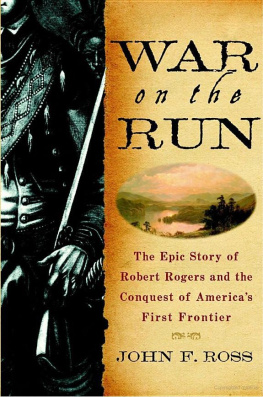
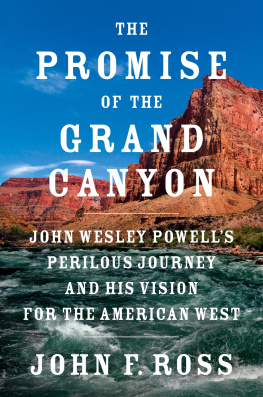


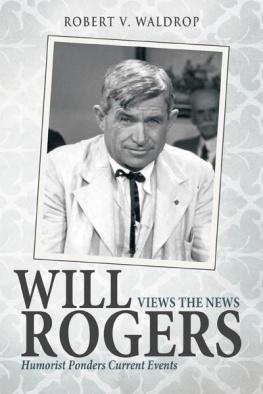



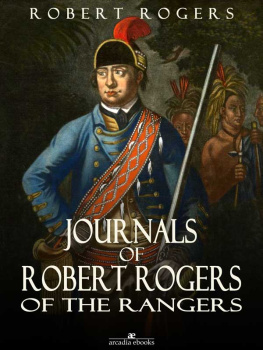


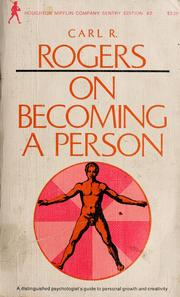
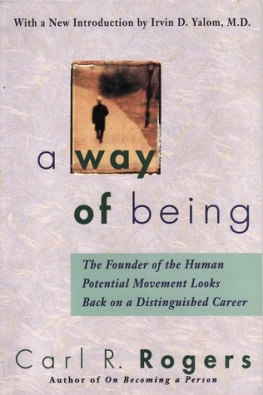
 The Polar Bear Strategy: Reflections on Risk in Modern Life
The Polar Bear Strategy: Reflections on Risk in Modern Life 




